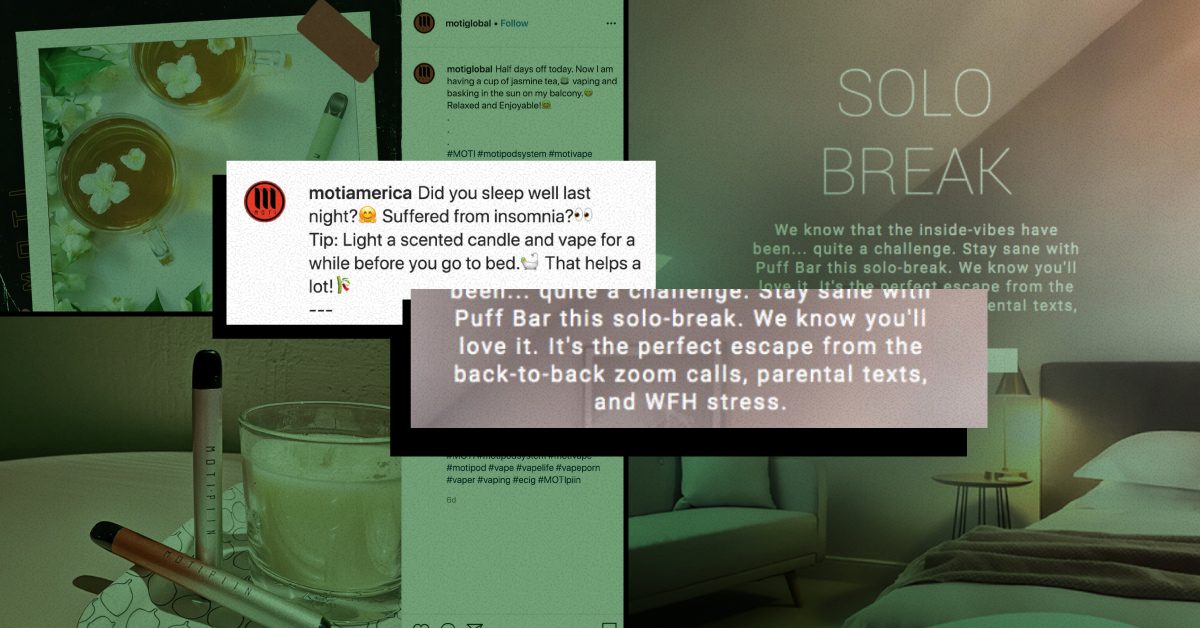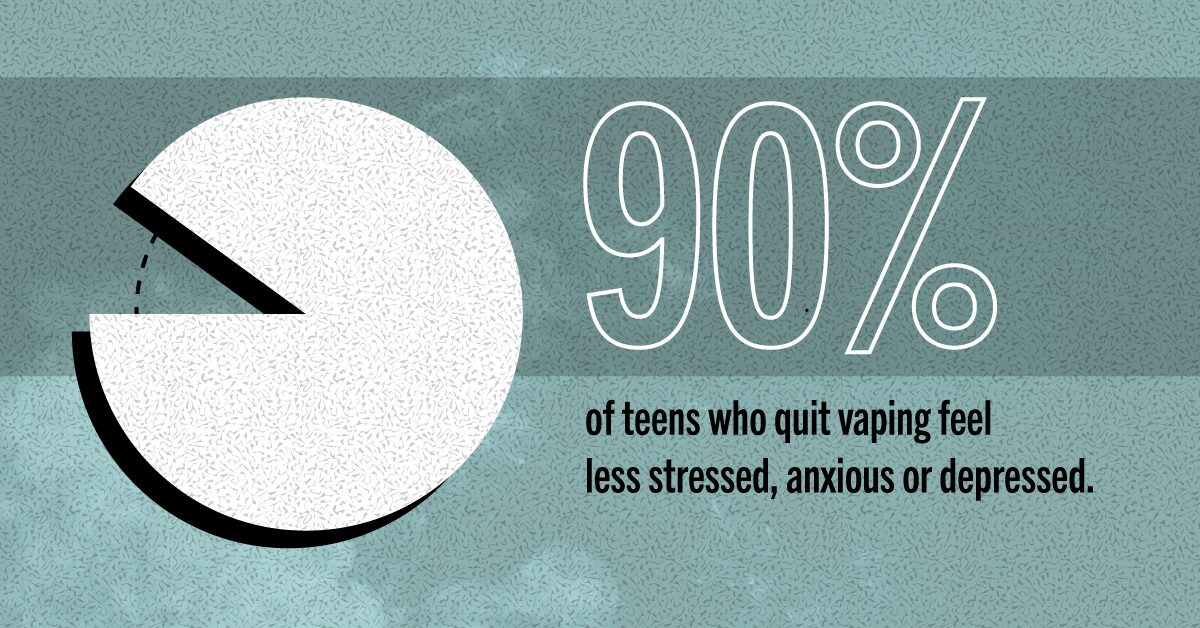How Does Nicotine Affect Mental Health?

As America struggles with an escalating mental health crisis, the toxic dynamic between tobacco use and mental health becomes even more prevalent, especially as young people look for new methods to self-soothe. Unraveling the complexities of this relationship starts by understanding Big Tobacco’s many schemes and their manipulation of mental health in the United States.

Nicotine’s False Promises
To sell new products such as vapes and nicotine pouches, tobacco companies use the same decades-old marketing strategy: stress relief. This strategy was so convincing that mental institutions handed out cigarettes to patients seeking treatment to reward good behavior. Tobacco companies have funded research on mental health to link smoking with mental health benefits.
Vape advertisements take the theme of stress relief one step further, depicting them alongside calm imagery and color schemes. Many young people buy into the lies. An alarming 81% of 15-24-year-old e-cigarette users stated they started vaping to decrease stress, anxiety or depression.

The Real Effects of Nicotine on Mental Health
The truth is both tobacco-derived and synthetic nicotine can make mental health issues worse. While a puff or draw may temporarily relieve symptoms of anxiety and depression, its addictive nature leads to increased mood disorders over time. According to a 2019 JAMA study of nearly 30,000 current e-cigarette users 18 and older, current e-cigarette users have double the odds of having a diagnosis of depression compared to those who have never vaped. A separate study showed youth who used vapes at higher rates were more likely to have depression symptoms.
Nicotine withdrawal symptoms further intensify mental health challenges, making it difficult for individuals to quit tobacco and nicotine without proper support. However, understanding the true impact nicotine has on mental health is the first step in breaking the cycle of addiction.

How To Help Mental Health
People with mental health conditions want to quit just as much as the general population.
A common misconception is that the results of quitting can be unpredictable and could potentially worsen mental health struggles. In fact, research shows the opposite is true. According to a Truth Initiative survey, 47% of young people who quit vaping feel more in control than when they were vaping, and 90% feel less stressed, anxious or depressed. As previously mentioned, people who are trying to quit may feel an increase in irritability, restlessness, hunger and sadness as they experience the symptoms of withdrawal; however, these symptoms are temporary and will likely pass after a few days.
Another common myth is that smokers and vape users with mental health can’t quit. It’s true that other challenges can make the journey harder, but they do not make it impossible. Additionally, research shows that health care providers who treat patients with mental health conditions do not encourage them to quit or offer cessation treatments.
The Oklahoma Tobacco Helpline offers FREE cessation services. The Helpline has resources to help alleviate withdrawal symptoms, such as patches, gum or lozenges, and additional services, like Coach support and live online group sessions. If you or someone you know is thinking about quitting tobacco, visit OKhelpline.com, call 1-800-QUIT NOW or text READY to 34191 to start the quit journey. Oklahoma teens struggling with tobacco use can connect to free quit services through My Life, My Quitä at MyLifeMyQuit.com or by texting “Start My Quit” to 36072.
Explore the dangers of tobacco and more information on the tobacco industry’s marketing manipulation and the effects it has on physical and mental health.







